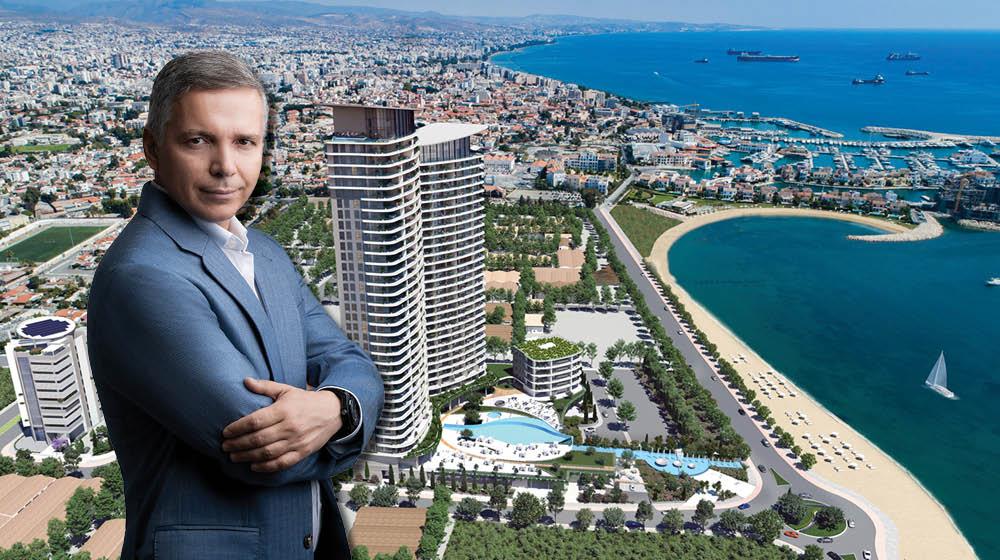Alexey Gubarev, Co-founder and Board member of Palta, a company dedicated to co-founding health and wellness startups, shares his views on Limassol’s transformation into the central hub of the local tech sector and highlights the challenges impeding its further growth.
Having operated in Limassol for more than two decades, what are your observations of how the city’s business and innovation landscape has evolved over the last 20 years?
Over the past two decades, Limassol has experienced notable growth in business and innovation, particularly in human resources, education and the tech sector and there are many more startups specialising in tech fields such as software development, cybersecurity, blockchain and Artificial Intelligence (AI). The relocation of IT companies began around 2011-12, with another big wave occurring in 2022 due to the Ukraine conflict, when over 18,000 professionals and their families moved to Cyprus. By 2020, the IT sector was contributing 8.5% to Cyprus’ GDP and it had risen to 13% by 2022. The average net salary for IT professionals stood at €5,700, making Cyprus an attractive destination for top professionals. This has led to more restaurants, events and increased interest from international artists in performing concerts in the city. So, the IT sector has greatly boosted the local economy and transformed the business environment.
Last year, Limassol hosted several large tech events, and TechIsland, on which you serve as a Board member, holds regular meetups. How would you evaluate the city’s potential to attract like-minded individuals into the tech scene? What additional steps are necessary to grow and support the local entrepreneurial community?
The recent Reflect festival, which took place in Limassol, reached a new level this year with 9,000 participants. I remember that the first Reflect in 2018 attracted around 300 participants. This shows that the entrepreneurial community is growing. To maintain this growth, we need more diverse startup programmes and support for startups. For instance, it’s currently impossible to obtain a digital nomad visa in Cyprus. Only 500 nomad visas were available on the island, and they were all quickly taken. But there’s no point in limiting these permits. They should be accessible to any qualified professional who meets the criteria. It would be great to see more initiatives like this.
The lack of competitive banking services is frequently cited as a significant challenge for international investors looking to establish a base in Cyprus. How substantial is this problem, and what mitigating measures do you suggest?
This is a significant problem: businesses feel strong pressure from banks and the Central Bank to limit their activities. In Cyprus, there are lengthy procedures for opening new accounts and there are restrictions on payments, even for recurring transactions; this takes a lot of time and reduces business efficiency. Meanwhile, banks outside Cyprus – among the top 10 in the world – do not face such issues. It would be beneficial if one of the global banks was to establish an office in Cyprus.
The need for more English-speaking schools has also been highlighted as a challenge. How does the current educational infrastructure impact Limassol’s tech scene, particularly in terms of attracting and retaining international talent?
The problem with schools exists not only in Limassol but also in other areas of Cyprus. Currently, there aren’t enough schools for the number of people living on the island. Schools are low-profit businesses. To solve the problem, the Government needs to come up with more incentives and make this business visible to investors so that they can allocate funds to this sector. The opening of another 10 schools would greatly help Cyprus. A child studying at a state school costs more to the Government than a child studying at a private school. Another incentive to consider is the removal of school fees from people’s taxable income, something that is done in many European countries. It would be good for Cyprus to adopt these practices. Currently, large companies can’t be relocated to the island because there are no places in schools for their employees’ children.
Limassol is experiencing a housing crisis, with demand far exceeding supply. What policy changes do you believe will yield the best results to address this issue?
The demand for housing has stabilised but it remains quite high. To solve the problem, more housing needs to be built but, in Limassol, over 3,500 building permits have not been considered and issued, significantly reducing the market’s ability to adapt to changing circumstances.
Finally, you have made significant investments in infrastructure, such as The Warehouse by ITQuarter. So, what new projects do you believe would help improve the city’s profile as an attractive destination for professionals and businesses alike?
Limassol needs more children’s parks; currently, there are very few. Additionally, pedestrian promenades, concert halls and galleries are lacking. It’s crucial to enhance the social and cultural aspects of life on the island.
This interview first appeared in the June edition of GOLD magazine. Click here to view it.









